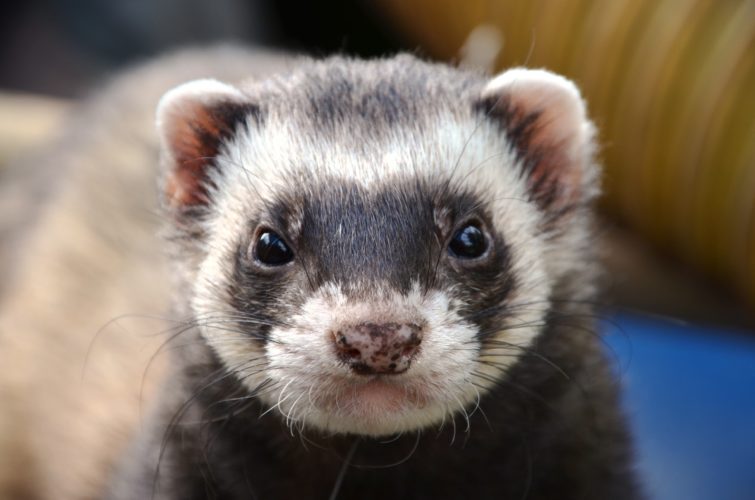THE GOOD AND THE BAD: CARING FOR RABBITS, FERRETS AND SUGAR GLIDERS
Pets include not only cats and dogs but also many more unusual creatures*. Here, Jordan Walker from Coops and Cages talks to us about caring for a few alternative pets
Small pets are always perfect for people who have limited space in their home. Rabbits, ferrets and sugar gliders are among the most popular small, furry companions. These animals are also classified as exotic pets. Only a few pet lovers can cater to their special needs. Animal lovers who are interested in keeping these small animals as pets should know what they’re getting into. They have to do research about the animal that they want and make sure that everything is all set, before their furry guest enters their home.

The Good and the Bad: Rabbits
Like other pets, rabbits can be purchased from a breeder or adopted from a rescue centre. If a bunny is well cared for, it can stay with the pet owner for at least ten years. Specific ailments should be noted and targeted early, with the help of an exotics vet. Take note that bunnies have impressive digestive systems. See to it that they digest their food properly. It is always a good sign if they always eat and poop. Bring the bunny to the exotics vet if it has not eaten or defecated.
An exotics vet or a veterinarian for exotic animals can do more than treat dogs and cats. They can also handle cases that involve reptiles, birds, and small mammals. Rabbits should always be inspected for genetic ailments, allergies, and parasites. If the bunny is adopted, its medical history should be reported in detail, so that the new owner can be informed of what to do right.
Bunnies have always been known as great beginners’ pets. Take note that they may not be appropriate for children. If the children in the house are well-oriented about bunnies, they may be able to handle the small pets. Bunnies need their backs supported when they are handled. They should not be dropped or left alone on a high surface. Any play time with small kids should be well supervised.

Here are the good things about keeping a rabbit for a pet:
- They have unique personalities, so boredom is not an issue.
- They are amusing, especially if they are “binky” or enjoying their life with their owners.
- They may not need yearly vaccinations or check-ups.
- They have inexpensive needs (cages, food).
- They are crepuscular (active during twilight times of dusk and dawn), which means the owner can care for bunnies well while working.
Below are the disadvantages of having rabbits:
- They cannot be walked.
- They are not ideal for young children.
- They are very delicate pets and they do not like to be picked up or handled all the time.
The good and the bad: Sugar Gliders
The good things:
- They are very cuddly.
- They bond with their owners with proper training, time, and care.
- They have cheap food such as vegetables, fruits, live insects, and pellets.
- They can be placed in a pouch. They love to be carried around.
- They can live up to ten whole years.
The not-so-good things:
- They can bite if they are hurt or scared.
- Male sugar gliders have a stronger scent for marking.
- On occasion, they need live food.
- They are hard to find and expensive.
- They cannot be trained to use the litter box or litter tray
The Good and the Bad: Ferrets
Ferrets are gorgeous pets, but pet owners have to make sure that they’re ready for them. Research about these small, exotic pets well and know that they need attention. They are small, energetic animals. They will assess the owners and test them through biting. As they grow, the owners tend to clean more poop and spend at least two hours with them out of their cages.
Below are the good things about having a ferret:
- They can live up to at least ten years.
- They are never boring pets.
- They can be walked, but they won’t walk with their owners.
- They can be trained to use the litter tray.
Here are some bad things pet owners have to deal with when they have ferrets:
- Ferrets can be crushed easily. Anyone in the house can be responsible for this by stepping on them accidentally. Ferret owners have to be cautious when they walk around the house.
- Some areas consider owning ferrets as illegal. It is ideal to check the pet legalities in the area of residence first.
- They have to be vaccinated regularly (annual—Canine Distemper, first 8 weeks—one initial vaccine, first 3 months—second vaccine).
- They suffer from depression if their owners leave them alone for long periods.
- They can be smelly.
In summary…
Whether it’s a rabbit, a ferret, or a sugar glider, choosing a small, exotic pet has its pros and cons. Potential owners should prepare well in having them as part of their lives. Proper education primarily helps in caring for them optimally.
About the author








Comments are closed.